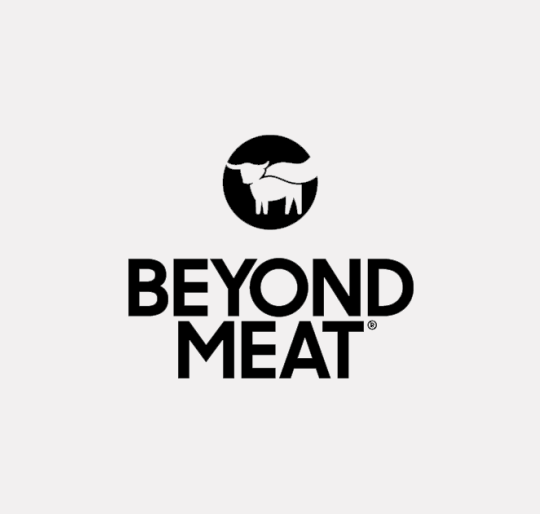
Published on July 7, 2021
Beyond Meat’s CEO Has a Holy Grail, and It’s Fake Bacon
The plant-based food company’s leader discusses getting on McDonald’s menus, working with Snoop Dogg and creating a meatless chicken breast.
For Beyond Meat Inc. Chief Executive Ethan Brown, snark and skepticism about his company’s meatless “meat” products serve as motivational tools.
Plastered on the walls of his El Segundo, Calif., office are lines from critical reviews of the company’s meat-mimicking technology, which uses yellow peas, potato starch, coconut oil and other ingredients to replicate beef’s texture and sizzle. “Slightly better Tofurky,” reads one quote. Another cites a 2015 magazine article that said Beyond Meat would never be able to turn pea protein into a convincing substitute for steak or chicken.
“You have to hold on to that, take that negative energy and use that to fuel you,” Mr. Brown argues.
The 49-year-old founded Beyond Meat in 2009 after quitting a career in alternative energy. Since its 2019 initial public offering, Beyond’s share price has multiplied to $145.56 as of Tuesday from its IPO price of $25, and its burgers, meatballs, sausage links and other plant-based meat products are projected to generate more than $500 million in world-wide sales this year. Beyond now has its sights set on poultry, after recently testing a plant-based version with KFC.
The pandemic’s blow to the food-service industry hurt Beyond’s business, contributing to four straight quarters of losses and spurring it to ramp up its supermarket presence. And some products haven’t panned out, including Dunkin’ Brands’ late-2019 nationwide launch of a Beyond breakfast-sausage sandwich, which the doughnut chain recently scaled back to several hundred restaurants.
Mr. Brown recently spoke with The Wall Street Journal. Here are edited excerpts:
WSJ: Did the pandemic ultimately hurt or help the broader plant-based food movement?
Mr. Brown: It was a period of introspection for a lot of people, on broad social issues like race and equity. Awareness of the connection between livestock and climate only seemed to accelerate throughout the pandemic. All of those things work in our favor.
WSJ: You’re developing a plant-based burger with McDonald’s Corp., and you have partnerships with PepsiCo Inc. and Yum Brands Inc., which owns Pizza Hut, Taco Bell and KFC. What’s the measure of success for Beyond?
Mr. Brown: The true north is a global protein company. Some of the larger protein companies are $40 billion-plus in revenues. As a goal, I always have that in my mind.
It’s a ubiquitous presence we’re most after—that you can go into a McDonald’s and get a Beyond product, or KFC, Taco Bell, Pizza Hut, and it is seamless for people who want to transition toward a plant-based meat. We have to make the product indistinguishable from animal protein. We have a lot of miles left before we get there.
WSJ: You could arguably cut the price of your products as low as possible to get more people to switch from meat. As a public company, that would come at a cost to your shareholders. How do you balance profits with your mission?
Mr. Brown: I’d give it away if I could. We obviously can’t do that. The great news is that we have a model that is efficient enough to be able to underprice animal protein at some point. We’re just not there yet. It has to do with scale.
I set two years ago a goal of being able to underprice animal protein, in at least one category, within five years. I think that’ll happen to beef.
WSJ: Do you have to be vegan to work at Beyond Meat?
Mr. Brown: We’re building a company, not a cult. I’m a very strict vegan, but some of my closest friends and advisers are hunters and anglers. The people who are in agriculture, family farms, are some of the hardest-working, most decent people. Being adversarial toward them is really the wrong approach.
WSJ: Your product replaces traditional beef, pork, chicken. Why bother building bridges with traditional agriculture?
Mr. Brown: It’s out of respect. And there’s an opportunity to bring innovation back to those communities and back to the farmer. You have all these incredible increases in [crop] yield per field, but we keep feeding [it into livestock production.] What if we break that cycle and take those farmers to something much more efficient? Farmers can make a lot more money.
WSJ: You’ve attracted celebrity investors, like Kyrie Irving, Lindsey Vonn, Leonardo DiCaprio, Snoop Dogg. What’s the best business advice you’ve gotten from Snoop?
Mr. Brown: His ability to promote is remarkable. He pitches a big big tent, from Martha Stewart all the way to any up-and-coming rapper from the deepest corners.
WSJ: What’s the holy grail in terms of products you haven’t yet developed?
Mr. Brown: The real test for us is to make each of our platforms—beef, pork and poultry—indistinguishable from animal protein. How do you make a raw chicken breast with the translucent skin, the color transition that occurs? Steak, given its distribution of fat and protein, and, of course, bacon? Those three things are the holy grail.
WSJ: Is it accurate to call, for example, your chicken product chicken?
Mr. Brown: Yes, it’s useful. You can insist that meat has to come from a chicken, cow or pig. Or you can, instead, focus on the composition of meat. If we’re able to deliver the amino acids, lipids, trace minerals, vitamins and water in the same architecture as an animal’s muscle, I think we have the right to call it that, albeit plant-based.
WSJ: Fifty years from now, how much meat will people eat?
Mr. Brown: It’s a function of three things: The consumer will say, ‘This tastes like meat, it’s better for my body and I could pay less for it.’ If we can break through all three of those, I see us capturing vast percentages of the market.
Write to Jacob Bunge at jacob.bunge@wsj.com
Copyright ©2021 Dow Jones & Company, Inc. All Rights Reserved.
Appeared in the July 8, 2021, print edition as ‘Beyond Meat CEO’s Holy Grail Is a Perfect Fake.’


